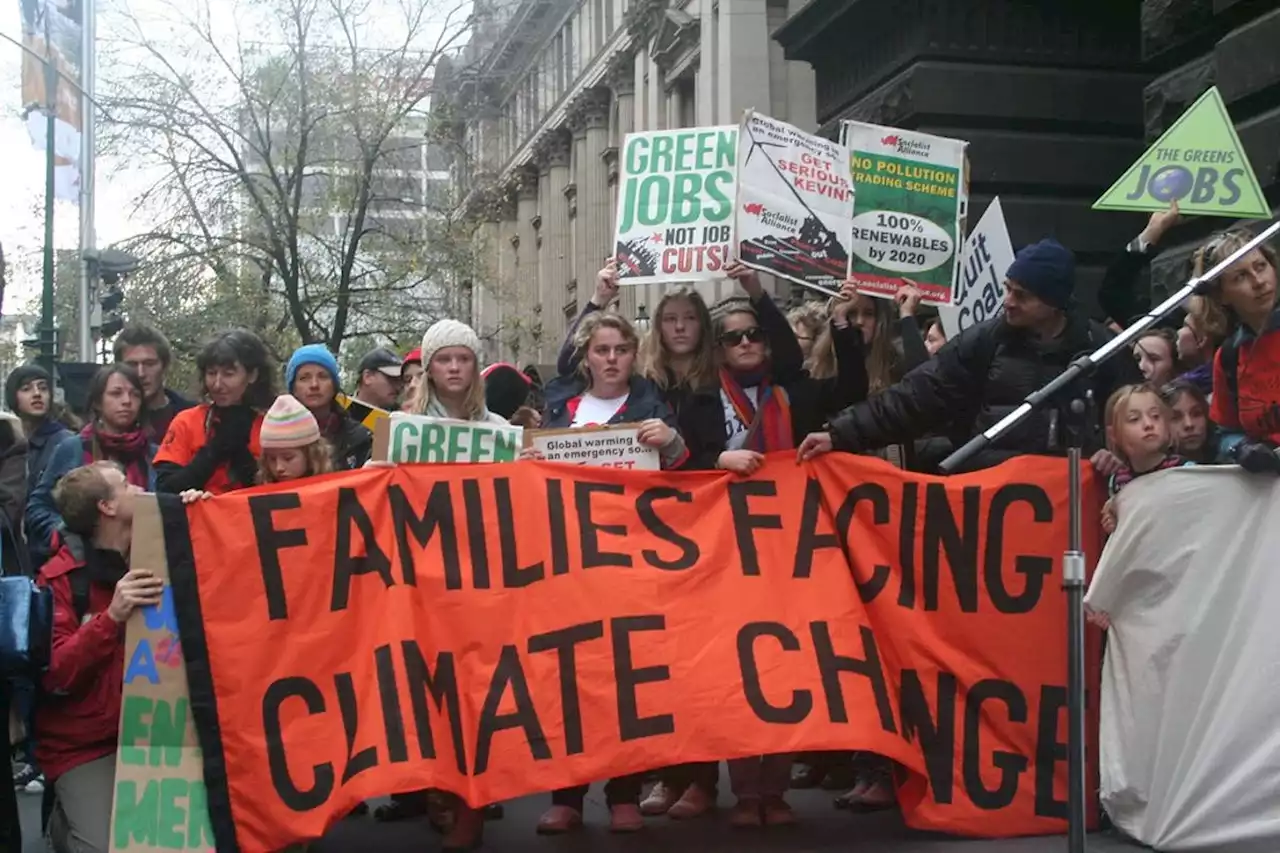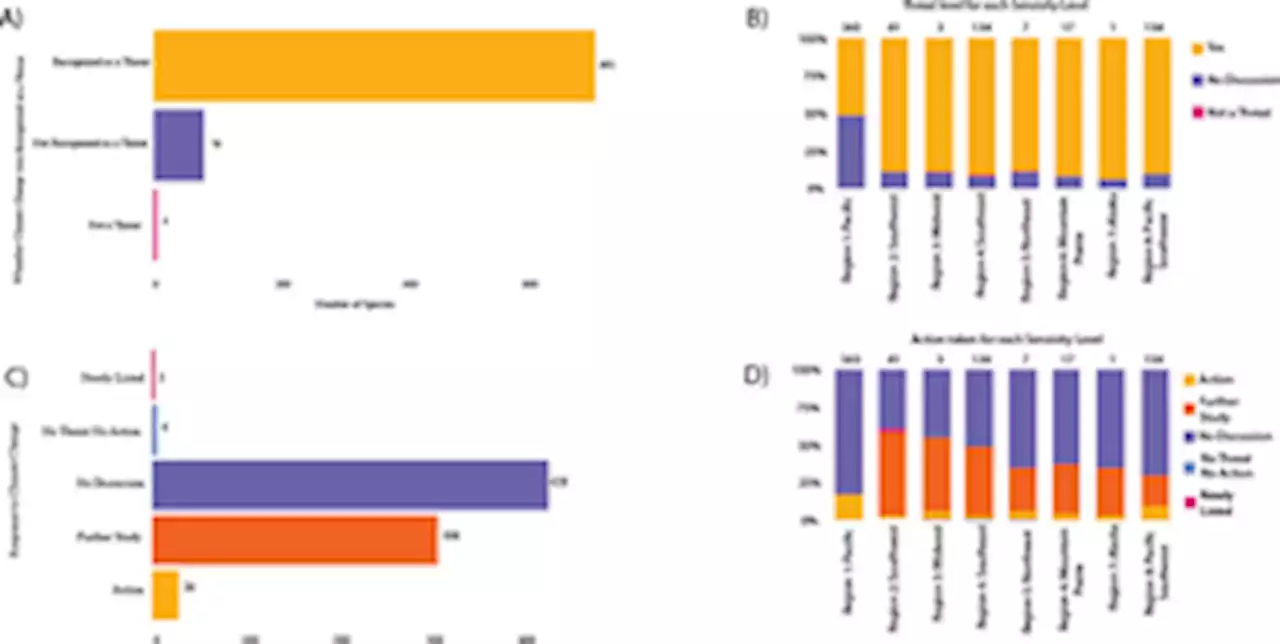Researchers from Climate Central reveal that the planet's average temperature from November 2022 to October 2023 was approximately 1.3 degrees Celsius higher than the average temperature between 1850 and 1900. The report also highlights that 1 in 4 people worldwide experienced a climate change-induced heat wave lasting at least five days in the past year. The findings are released just before the 28th United Nations Climate Change Conference of the Parties.
From November 2022 through October 2023, the planet’s average temperature was about 1.3 degrees Celsius higher than the average temperature from 1850 to 1900, say researchers with the nonprofit group Climate Central . That’s just shy of theAnd over the past year, about 1 in 4 people around the world experienced a climate change –driven heat wave that lasted at least five days, the scientists found.
The report, released on November 9, comes just ahead of the 28th United Nations Climate Change Conference of the Parties, which begins on November 30. That’s intentional, says Andrew Pershing, vice president for science at Climate Central. There is no doubt thatGlobal average numbers can be hard to grasp. So the new report also quantifies temperatures that people around the world are actually experiencing day-to-day, and how much those are attributable to climate change, Pershing says.). “We wanted to develop a way to really localize that experience … to talk about how climate change influenced that day’s temperatures on any given day anywhere in the plane
Global Temperature Climate Change Heat Wave Climate Central UN Climate Change Conference
United States Latest News, United States Headlines
Similar News:You can also read news stories similar to this one that we have collected from other news sources.
 Celsius creditors committee proposes suing Mashinsky, other Celsius execsThe Celsius Official Committee of Unsecured Creditors (UCC) says it has identified “significant claims and causes of action” against Alex Mashinsky and other insiders for breaching their fiduciary obligations and fraudulent transfers, among others.
Celsius creditors committee proposes suing Mashinsky, other Celsius execsThe Celsius Official Committee of Unsecured Creditors (UCC) says it has identified “significant claims and causes of action” against Alex Mashinsky and other insiders for breaching their fiduciary obligations and fraudulent transfers, among others.
Read more »
 A Committee of Celsius Creditors Objects to Celsius Selling Its Stablecoin Cache – Bitcoin NewsThe committee of unsecured Celsius creditors stressed in its motion that the stablecoin sale request “should not be approved at this time.”
A Committee of Celsius Creditors Objects to Celsius Selling Its Stablecoin Cache – Bitcoin NewsThe committee of unsecured Celsius creditors stressed in its motion that the stablecoin sale request “should not be approved at this time.”
Read more »
 Climate change made July hotter for 4 of 5 humans on Earth, scientists findHuman-caused global warming made July hotter for four out of five people on Earth, with more than 2 billion people feeling climate change-boosted warmth daily, according to a flash study. More than 6.5 billion people, or 81% of the world’s population, sweated through at least one day where climate change had a significant effect on the average daily temperature, according to a new report issued Wednesday by Climate Central, a science nonprofit that has figured a way to calculate how much climate change has affected daily weather. “We really are experiencing climate change just about everywhere,” said Climate Central Vice President for Science Andrew Pershing.
Climate change made July hotter for 4 of 5 humans on Earth, scientists findHuman-caused global warming made July hotter for four out of five people on Earth, with more than 2 billion people feeling climate change-boosted warmth daily, according to a flash study. More than 6.5 billion people, or 81% of the world’s population, sweated through at least one day where climate change had a significant effect on the average daily temperature, according to a new report issued Wednesday by Climate Central, a science nonprofit that has figured a way to calculate how much climate change has affected daily weather. “We really are experiencing climate change just about everywhere,” said Climate Central Vice President for Science Andrew Pershing.
Read more »
 Why the 1.5-degree-Celsius climate goal still mattersWith COP27 currently taking place in Egypt, world governments are revisiting old climate goals, like the 1.5-degree-Celsius warming threshold, and negotiating new ones.
Why the 1.5-degree-Celsius climate goal still mattersWith COP27 currently taking place in Egypt, world governments are revisiting old climate goals, like the 1.5-degree-Celsius warming threshold, and negotiating new ones.
Read more »
 Which Climate Scenarios Limit The Earth’s Warming To 1.5 Degrees Celsius?This article identifies a cross selection of climate scenarios that can stave off global warming -- or incite no return.
Which Climate Scenarios Limit The Earth’s Warming To 1.5 Degrees Celsius?This article identifies a cross selection of climate scenarios that can stave off global warming -- or incite no return.
Read more »
 The impact of climate change on endangered plants and lichenThe Endangered Species Act (ESA) was a landmark protection for rare organisms in the United States. Although the ESA is known for its protection of wildlife, a majority of listed species are actually plants and lichen. Climate change will impact species populations globally. Already-rare species, like those listed in the ESA, are at an even higher risk due to climate change. Despite this, the risk climate change poses to endangered plants has not been systematically evaluated in over a decade. To address this gap, we modified previously existing qualitative assessment toolkits used to examine the threat of climate change in federal documentation on listed wildlife. These modified toolkits were then applied to the 771 ESA listed plants. First, we evaluated how sensitive ESA listed plants and lichens were to climate change based on nine quantitative sensitivity factors. Then, we evaluated if climate change was recognized as a threat for a species, and if actions were being taken to address the threats of climate change. We found that all ESA listed plant and lichen species are at least slightly (score of 1) sensitive to climate change, and therefore all listed plants and lichens are threatened by climate change. While a majority of ESA listing and recovery documents recognized climate change as a threat, very few had actions being taken in their recovery plans to address climate change directly. While acknowledging the threat that climate change poses to rare plants is an important first step, direct action will need to be taken to ensure the recovery of many of these species.
The impact of climate change on endangered plants and lichenThe Endangered Species Act (ESA) was a landmark protection for rare organisms in the United States. Although the ESA is known for its protection of wildlife, a majority of listed species are actually plants and lichen. Climate change will impact species populations globally. Already-rare species, like those listed in the ESA, are at an even higher risk due to climate change. Despite this, the risk climate change poses to endangered plants has not been systematically evaluated in over a decade. To address this gap, we modified previously existing qualitative assessment toolkits used to examine the threat of climate change in federal documentation on listed wildlife. These modified toolkits were then applied to the 771 ESA listed plants. First, we evaluated how sensitive ESA listed plants and lichens were to climate change based on nine quantitative sensitivity factors. Then, we evaluated if climate change was recognized as a threat for a species, and if actions were being taken to address the threats of climate change. We found that all ESA listed plant and lichen species are at least slightly (score of 1) sensitive to climate change, and therefore all listed plants and lichens are threatened by climate change. While a majority of ESA listing and recovery documents recognized climate change as a threat, very few had actions being taken in their recovery plans to address climate change directly. While acknowledging the threat that climate change poses to rare plants is an important first step, direct action will need to be taken to ensure the recovery of many of these species.
Read more »
